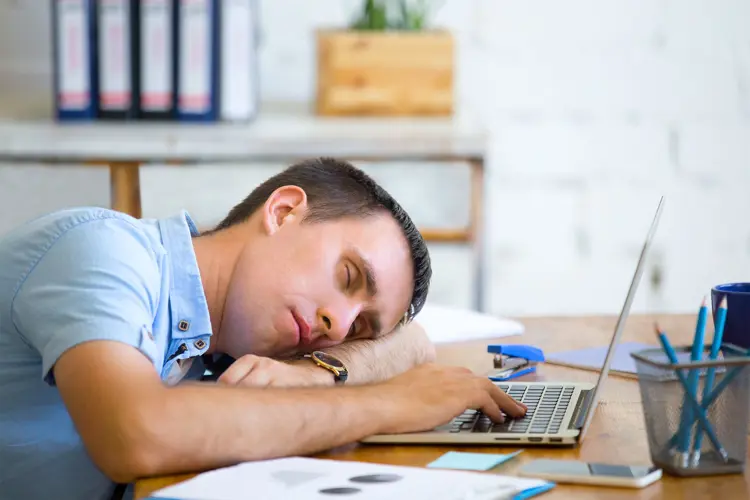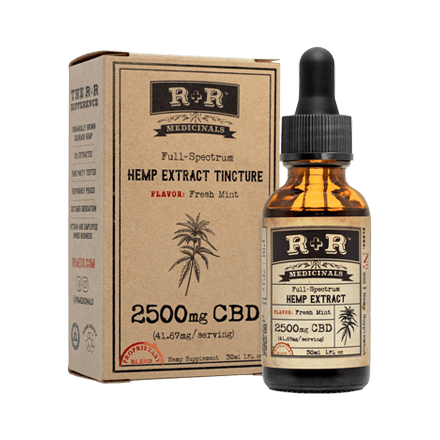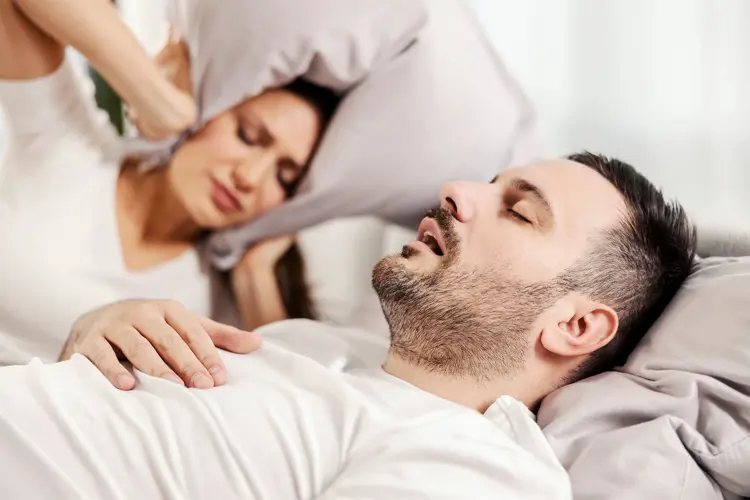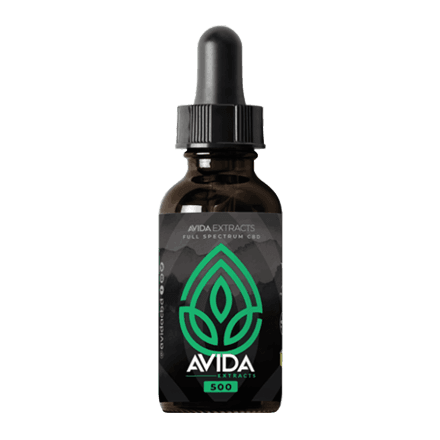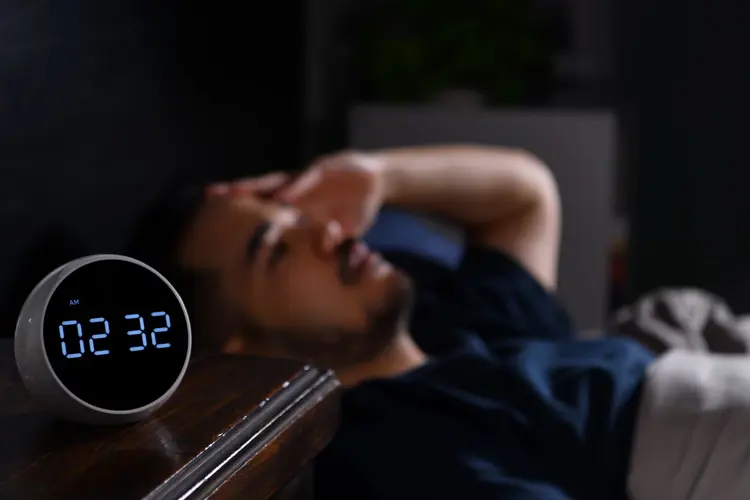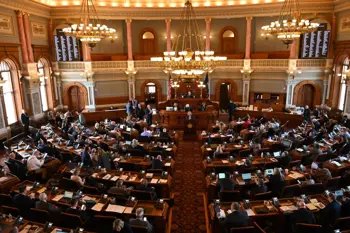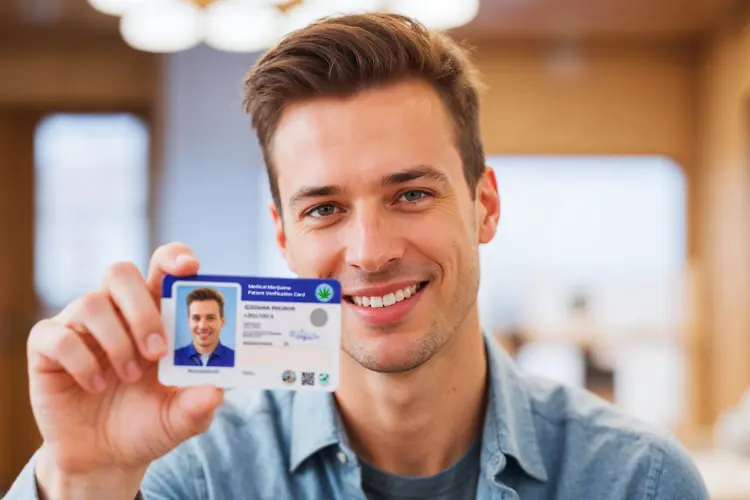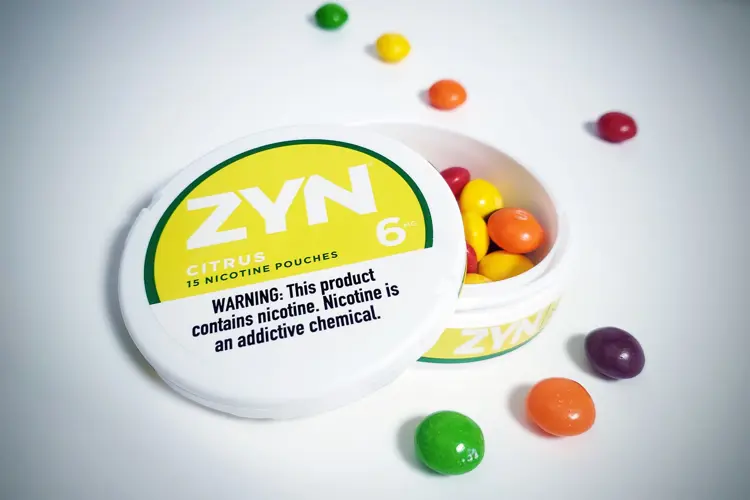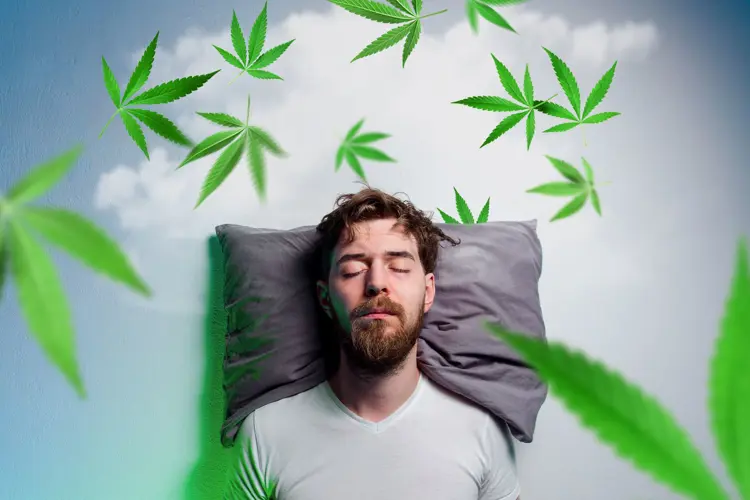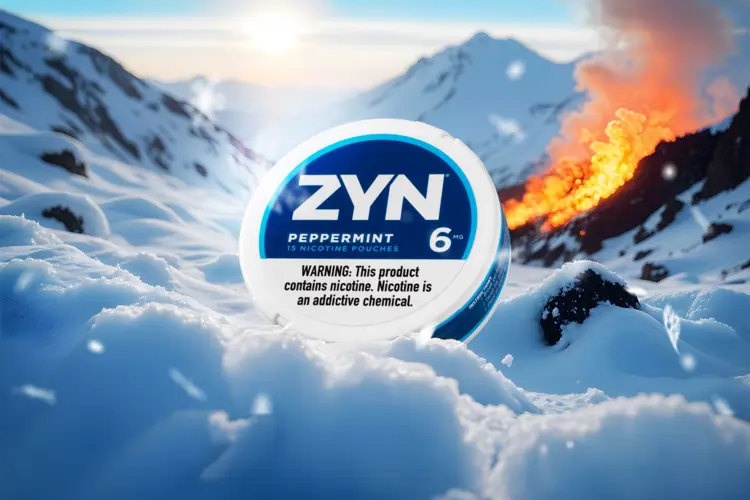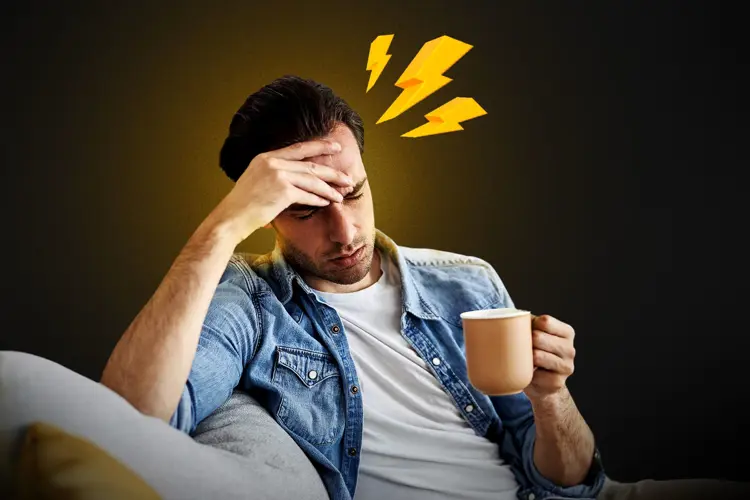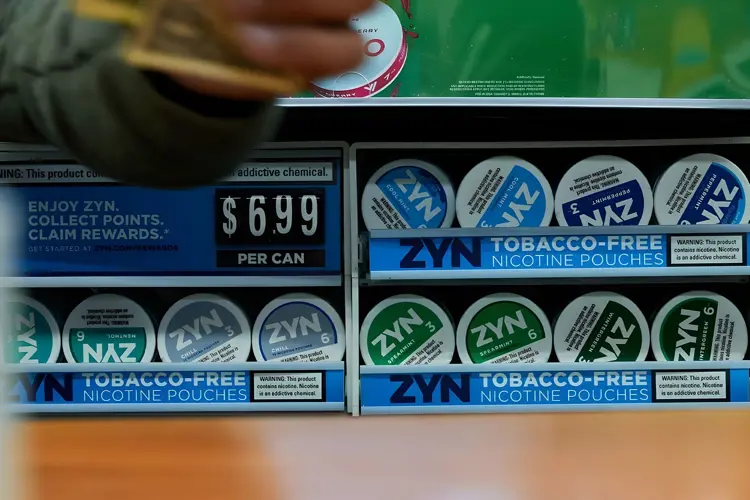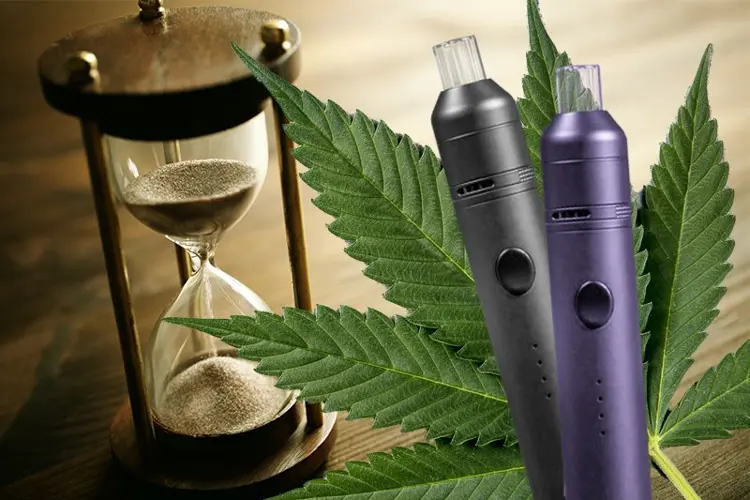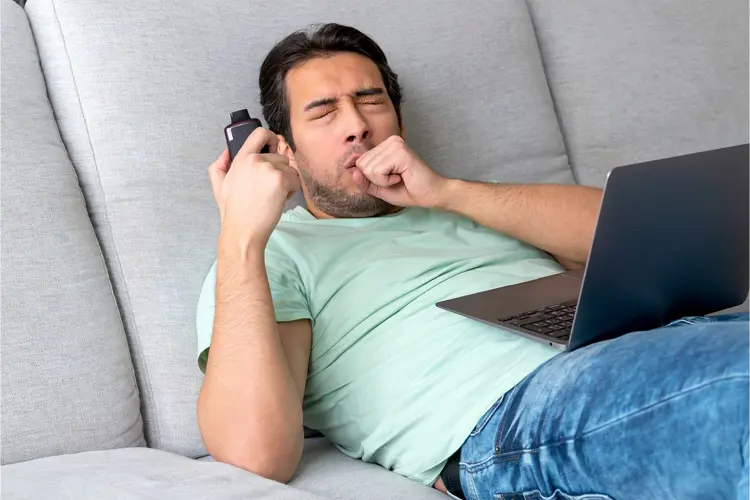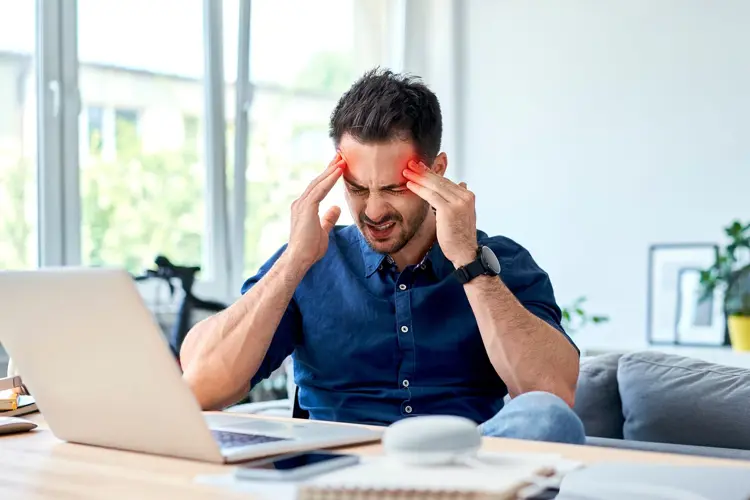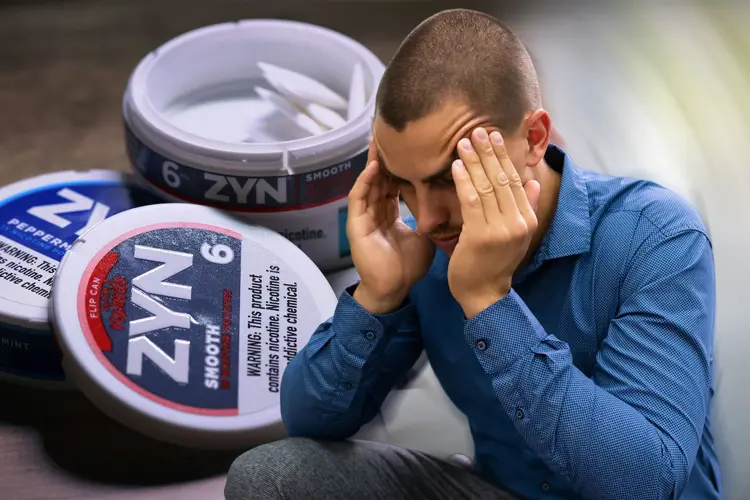If you asked me a few years ago what I knew (or believed) about CBD, I might have mentioned sleep benefits. Using CBD vape pens gained traction due, in part, to its mentally and physically soothing qualities. It’s only natural that it would also help with sleep, right?
It turns out it’s not that simple. Vaping CBD before bed could help you fall asleep, but it doesn’t have that effect on everyone. It also may not be the most direct impact, either.
CBD is my go-to when I want to ease stress or better manage my racing thoughts. While I sometimes snack on CBD gummies to relax during the day, I’m more likely to reach for THC at night. That said, CBD’s list of benefits is impressive, and you might find this one worth exploring—especially if you already struggle with sleep.
Sleep and the endocannabinoid system (ECS)
Sleep-wake cycles and the human endocannabinoid system (ECS) are closely linked.
When you consume a cannabis product, there’s a good chance it’ll interact with either CB1 or CB2 receptors in the ECS. Maybe it’ll strongly target both, or maybe its influence will be indirect, at best. It depends on the cannabinoid.
CB1 receptors are found throughout the central nervous system, including in the basal forebrain and pons. Stimulating these brainstem receptors could have a sedative effect. Delta 9 THC has a high affinity for CB1. I often feel sleepy after vaping THC-dominant cannabis, and that’s one possible reason why.
As always, the deeper we dig, the more complicated and nuanced it gets. For me, CB1 activation alone doesn’t always trigger sedation, and not every cannabinoid makes me feel tired. Some even have the opposite effect—or no effect at all. I also don’t need to consume cannabis for the ECS to play a role in my sleep.
It’s a complex system. Various neurons and hormones contribute, too, and research into the details is ongoing.
The chemistry of CBD for sleep: where does it begin?
It’s not fully clear where CBD fits into the picture. Unlike delta 9 THC and other intoxicating cannabinoids, CBD doesn’t appear to have an explicitly sedative effect, nor does it bind to CB1 or CB2 receptors. Its interactions are less direct.
Rather than a cannabinoid receptor like CB1, CBD molecules link to transient receptor potential (TRP) channels, prompting the body-and-mind relief this cannabinoid is known for. TRP sensor channels play a major role in our response to pain, as well as temperature control, sight, and touch.
I’ve seen CBD called non-psychoactive many times before, but that isn’t accurate. Any substance that alters brain chemistry or the nervous system is psychoactive. CBD does, however, have significantly different effects from THC. CBD alone won't get you high, and it seems to influence sleep in ways beyond sedation.
Will CBD make me sleepy?
It’s complicated. CBD isn’t usually sedating, but it could reduce pain and discomfort, combat stress, and induce a host of body-soothing effects that might help promote sleep. This isn’t a direct effect, though it could be an important one.
CBD is relaxing for me. Not everyone notices such significant relief, however, and the same idea applies to CBD’s sleep-inducing qualities. They’re not a guarantee for everyone.
From what researchers can tell, CBD may improve sleep quality and help us keep a healthy sleep-wake schedule. Even so, a study published in early 2024 found that CBD supplementation produced no better sleep outcomes than a placebo. It did have a positive psychological effect and helped with daytime well-being.
I’d suggest experimenting with various CBD dosages to see if any produce the desired effect. While it isn’t uncommon for people to cite improved sleep with CBD, it could boost alertness and focus instead.
CBD and rapid eye movement (REM) sleep
High CBD doses may minimize time spent in REM sleep, although studies have shown mixed results. Increased REM latency—or the amount of time before the REM sleep stage is achieved—can encourage longer bouts of deep sleep and better mental health. During REM, the brain is as active as it gets outside waking hours.
While it’s necessary and restorative, REM alone doesn’t make us feel refreshed in the morning. Waking up during the REM sleep stage can also result in daytime grogginess. Recent studies have been discouraging regarding CBD and REM sleep, and it's now uncertain whether CBD has a notable impact on REM sleep behavior disorder.
CBD and sleep disorders
There’s a growing body of evidence that CBD can improve sleep quality and make it easier to fall asleep, but there’s no indication that it can treat clinical sleep disorders. It should only be used as a supplement to medications prescribed by a doctor for sleep or mental health. I’d also advise speaking to a doctor before starting a CBD regime, in general, to avoid interactions with other medications or supplements.
Even as I cover the more impressive research, remember the distinction between management and cure. If someone is kept awake by chronic pain associated with a medical diagnosis, CBD may reduce discomfort and help them rest better, but it won’t cure or treat the underlying illness. Sleep disorders and mental health conditions are no different.
CBD may help modulate the nervous system and relieve certain symptoms, but it isn’t a miracle drug. The only CBD-based drug approved by the U.S. Food and Drug Administration (FDA) is an epilepsy medication called Epidiolex. Those in the United Kingdom have access to Nabiximols, a multiple sclerosis medication containing equal parts CBD and THC.
Chronic insomnia disorder
Insomnia disorder goes far beyond a few restless nights. It’s a chronic condition with detrimental effects on the sufferer’s physical and mental health, taking a toll on their quality of life. To qualify for a diagnosis, the patient must struggle to fall or stay asleep three times or more per week, with symptoms persisting for at least three months.
Treatment of insomnia is multi-faceted and must be tailored to the individual. Because the disorder has so many potential causes, it isn’t always enough to manage the symptom itself. It may be more effective to target the underlying causes. CBD alone can’t do this.
So, while CBD won’t get to the core of insomnia, there is evidence that it could improve sleep quality and quantity in those with the disorder. This could prove highly valuable for everyday comfort and energy levels. Most studies report symptom reduction in a portion of CBD study participants, though nearly none address long-term insomnia outcomes. CBD’s full efficacy is unproven.
Sleep apnea
Sleep apnea is a common breathing condition that disrupts sleep. It comes in two forms, which can exist in tandem: obstructive sleep apnea (OSA) and central sleep apneas (CSAs).
OSA is a disorder resulting from upper airway collapse. While OSA patients can also experience CSAs, central apneas are not caused by physical obstruction. Instead, CSAs are a byproduct of disrupted communication between the brain and breathing muscles.
The potential link between cannabis and apneas is worth exploring, but as it stands, CBDis not a recommended treatment for either condition. Studies have shown a preliminary link between cannabinoids and serotonin-induced apneas, with the most promising results coming from CB1 agonists like THC. It seems that, if anything, CBD (a CB1 antagonist) could counteract the anti-apnea effects of agonists.
Narcolepsy
Pre-clinical animal studies have found a potential tie between CBD and wakefulness in those with orexin deficiency. The more orexin the brain produces, the more likely you are to feel wide awake and alert during the day.
Orexin, a type of neurotransmitter, seems to play a major role in the development of narcolepsy. This is a complex sleep disorder that involves not only daytime sleepiness, but also possible sleep paralysis, hallucinations, and loss of muscle control.
There’s no known cure for narcolepsy, so finding new, well-tolerated treatments is the goal—and CBD shows promise.
Post-traumatic stress disorder (PTSD)
Sleep disturbances aren’t a guarantee in PTSD, but they’re a common feature of the disorder. Reducing nightmares and improving sleep quality is just one goal of treatment.
Since nightmares aren’t easily treated with medication, alternative therapies like CBD and THC may be appealing. Falling into a hypervigilant state at night increases physical and mental stress—and that stress is made worse by exhaustion. Ignoring sleep issues may exacerbate other PTSD symptoms.
Hormonal and endocannabinoid dysregulation is at the core of many PTSD symptoms, and balancing these systems can improve sleep outcomes. CBD might provide a valuable piece of this puzzle, alongside THC and the synthetic cannabinoid nabilone.
CBD for sleep: isolate vs. broad spectrum vs. full spectrum
Using cannabis for sleep comes in many forms. I’ll explore alternative cannabinoids for sleep later, but CBD products can be divided into three categories: isolate, broad spectrum, and full spectrum.
Isolates are distilled extracts containing a high concentration of one cannabinoid. As the manufacturing process strips the natural flavor compounds, isolates are often supplemented with plant-derived terpenes for a dash of flavor and authentic herbal aroma.
Broad and full-spectrum hemp extracts feature a range of cannabinoids and terpenes. The distinction is slight, though broad-spectrum CBD oils tend to contain smaller trace amounts of THC—or none. Full-spectrum extracts contain the complete range of organic compounds from the source plant.
To benefit from the so-called entourage effect, I’d recommend either broad or full spectrum CBD products. Cannabis compounds may bolster each other’s benefits and have a more pronounced effect when consumed together. Full-spectrum CBD oil could have robust body-soothing effects and might help sleep come easier.
Is it safe to use CBD for sleep?
Depending on an individual’s history, the risks of using CBD for sleep can vary. This cannabinoid is well-tolerated by the majority of generally healthy people.
Potential side effects
It doesn’t matter if I’m taking CBD to relax in the afternoon or fall asleep at night. Side effects are a risk, though fortunately, adverse reactions to CBD tend to be milder than those from THC or other intoxicating cannabinoids. Side effects to be aware of with CBD include:
- Dry mouth
- Reduced appetite
- Diarrhea
- Nausea or stomach pain
- Fatigue
- Dizziness
When they do occur, the severity of these effects can vary. It’s wise to start with a small CBD dose (don’t go above the manufacturer’s suggestion) and work your way up, keeping an eye out for adverse effects along the way. Consider taking less CBD or ceasing use if it isn’t benefiting your body or sleep schedule.
Lack of hemp regulations
While CBD itself is safe for the average user, our current hemp landscape is rocky. Due diligence is necessary when shopping for CBD and other hemp products. I always check for a certificate of analysis (COA) before purchasing hemp products of any kind, even if I'm sticking to popular products like CBD.
The 2018 Farm Bill legalized hemp products for sale and possession in the United States (state laws vary), provided they contain less than 0.3% delta 9 THC by dry weight.
Regardless, the U.S. government has yet to establish specific content standards or testing requirements for hemp-derived products, including CBD. It’s up to us as consumers to research hemp products before we use them. If a manufacturer sells products without providing a COA, pass and look somewhere else.
Drug interactions
Both my prescription and over-the-counter medications can interact with each other and with other substances I consume. That could include foods, food supplements, or plants and plant-based compounds like cannabis-derived CBD.
Our bodies need to metabolize any substance we ingest to reap its effects, and wires can get crossed if we’re processing multiple substances at once. That’s why doctors warn patients on blood thinners not to take aspirin (it can cause bleeding in the digestive tract) and advise some patients on statins to avoid eating grapefruit (they can interact and cause liver and kidney damage).
I’d strongly suggest speaking to your doctor if you take any medication and are interested in using CBD. At minimum, be sure to research potential drug interactions.
Other cannabinoids for sleep
An interplay between CBD and sleep exists, but other cannabinoids may provide equal or even greater benefits.
CBN for sleep
CBN was the first cannabinoid identified and documented by chemists. It could also help us fall asleep easier and reduce night time disturbances.
I began experimenting with CBN several years ago, after hearing about its possible sleep-promoting abilities. Some studies suggest that CBN improves sleep when mixed with THC, and other research showed it may be useful on its own, too. In a 2024 study, CBN increased both non-REM and REM sleep in rats.
While there’s been academic contention and claims that marketing is at fault, evidence of CBN’s benefits is growing. Sadly, mixing CBN with CBD doesn’t seem to be any more effective for sleep than taking CBN on its own.
THC for sleep
If sedation is the goal, I’d reach for delta 9 THC over CBD. THC has high CB1 receptor affinity and, for many of us, a substantial sedative effect.
Insomnia is one of the primary motivators behind medical cannabis use. While THC’s relationship to sleep is well-documented and is being actively explored by researchers, it’s not fully clear how valuable this link is to managing symptoms of specific conditions. These effects can also be strain-dependent.
A 2021 paper parsed symptoms, diagnoses, and sleep ratings logged by 991 individuals on a medical marijuana app. Indica varieties of marijuana were found to best combat insomnia symptoms. High-CBD and sativa strains had less pronounced impacts.
THC could also outshine CBD when it comes to sleep apnea. Dronabinol, a legal form of synthetic THC used to treat symptoms of HIV and chemotherapy, can be prescribed off-label as an OSA treatment. This has inspired new research into THC and sleep apnea—and the early results look hopeful.
President Trump promised during his election campaign to “save vaping," but his administration has undermined that goal at every turn.
The U.S. disposable vape market has grown to $2 billion in annual sales, although nearly none of the products are authorized by the FDA.
More than 30 bills that would impose severe restrictions vaping consumers’ product choices remain active in U.S. state legislatures.
The Freemax REXA PRO and REXA SMART are highly advanced pod vapes, offering seemingly endless features, beautiful touchscreens, and new DUOMAX pods.
The OXVA XLIM Pro 2 DNA is powered by a custom-made Evolv DNA chipset, offering a Replay function and dry hit protection. Read our review to find out more.
The SKE Bar is a 2 mL replaceable pod vape with a 500 mAh battery, a 1.2-ohm mesh coil, and 35 flavors to choose from in 2% nicotine.

